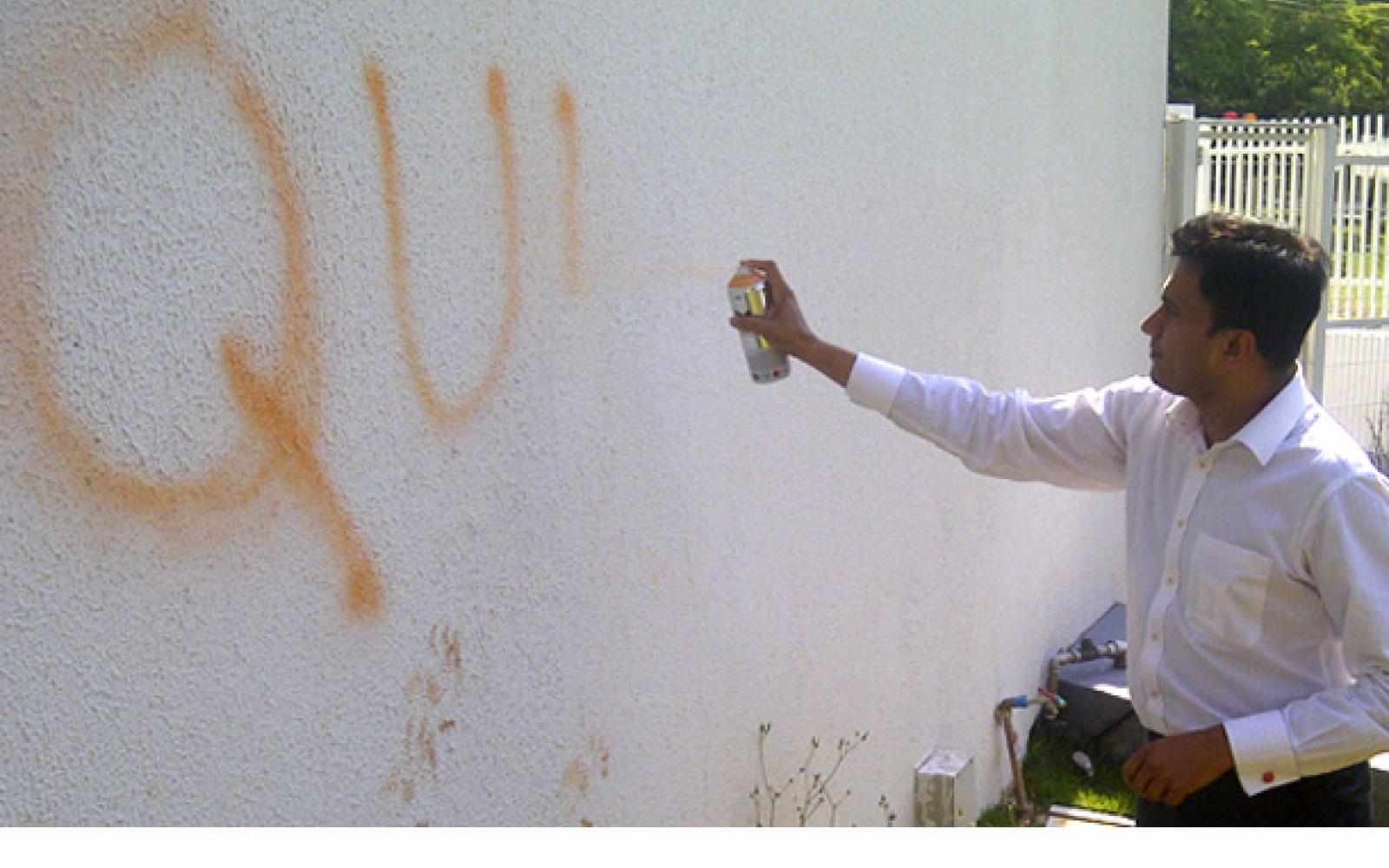What a Pro Bono Experience Taught One Western Union Leader about Shared Value and Empathy

Kiran Shetty is the Regional Vice President & Managing Director, India for Western Union Financial Services, Inc. and an active member of the US India Business Council, American Chamber of Commerce and the Indo-American Chamber of Commerce in India. Through Ashoka’s Executive in Residence program, Mr. Shetty travelled to São Paulo, Brazil in 2012 to work with Ashoka Fellow Auro Lescher, Founder of Projeto Quixote—an organization that uses creative activities, education, and relationship-building to restore street children’s confidence in themselves and their futures.
Given my experience in India, receiving a placement in Brazil was a promising opportunity. India and Brazil are both countries experiencing rapid economic growth. The two countries, therefore, share many similar challenges, but also similar opportunities. Cultural differences do exist, but these two fast-paced societies share an understanding that finding solutions in an unfamiliar environment is directly reliant on one’s understanding of collaborative dynamics and an ability to adapt quickly to change.
As an Executive in Residence, I spent two weeks working pro-bono with the Projeto Quixote—an organization founded by Ashoka Fellow Auro Lescher that is devoted to rehabilitating street kids who have struggled with drugs—to improve their financial sustainability model. When I signed on for the project, I expected to be giving something of myself to a meaningful cause. But what I did not expect was that the experience would be a powerful learning experience that would strengthen my own skills as a leader back at Western Union. My time in Brazil left a lasting impression on my approach to both my personal and professional lives, by helping me to develop vital changemaking skills and gain a deeper understanding of the concept of shared value.
Building Leadership through Empathy
I came into the Projeto Quixote placement with inadequate patience, which became evident in my initial conversations with the organization’s staff members. On my first day, I approached our conversations about the challenges the organization was facing from a strong corporate perspective, while my Projeto Quixote counterparts approached the same challenge from a social sector perspective. Frankly, we did not understand one another. It was frustrating on both ends.
As the second day began, I understood that I needed to be more patient and to try to better understand my counterparts’ perspectives so that we could meet one another in the middle and begin to bridge the gap. Finally, five subsequent days of collective thinking led to greater understanding and greater patience. I understood that each person I worked with had strengths and talents to offer to the organization, and I developed a newfound ability to specify and utilize an individual’s skillset to the benefit of the whole.
This beautiful example of leadership development extended to my work at Western Union. I recognized that one of my team members who had stagnated in his current sales position was a natural communicator; it was clear to me that his abilities were not fully recognized in his current role and that he would thrive in a different position. This team member is now a very successful relationships manager. Had I not practiced and developed my applied empathy and active listening skills, this asset to our team might have been lost.
Shared Value—From Theory to Action
In addition to my own professional development, the Executive in Residence experience opened my eyes to the true meaning of shared value.
I am proud to work for a company rooted in socially-minded principles and one that gives their employees the opportunity to participate in programs such as Ashoka’s Executive in Residence Program. Western Union’s CEO, Hikmet Ersek, is very passionate about the shared value concept—a term I often heard but never fully understood until my participation in the Executive in Residence program. Our CEO had long stressed the need to give back to society, but my experience provided the extra understanding and motivation I needed to do so.
As a senior executive in India, where half of the population does not have a bank account, I began to think about how the shared value concept could benefit this underserved population. Equipped with a better understanding of the social sector and the challenges faced by underserved populations, I returned from my Executive in Residence placement ready to put this new knowledge into action. In October of last year, Western Union launched a pre-paid card program in India for the unbanked population. In the initial stages of this project, I was able to recognize the potential for massive social benefit and devoted my time and energy to advance and grow the concept. A year after implementation, these previously underserved customers now have access to financial services, and most importantly, have the opportunity to improve their livelihoods for themselves and their children.
Take the Leap
At the end of the day, my pro-bono experience has been hugely valuable. I am a more empathic leader, have a deeper understanding of our company’s role in creating social change, and recognize my own power to create positive change in the world. For all of these reasons, I encourage every corporate leader to contribute their time and skills to the social sector.
Participation in pro-bono partnerships is truly a game-changer.